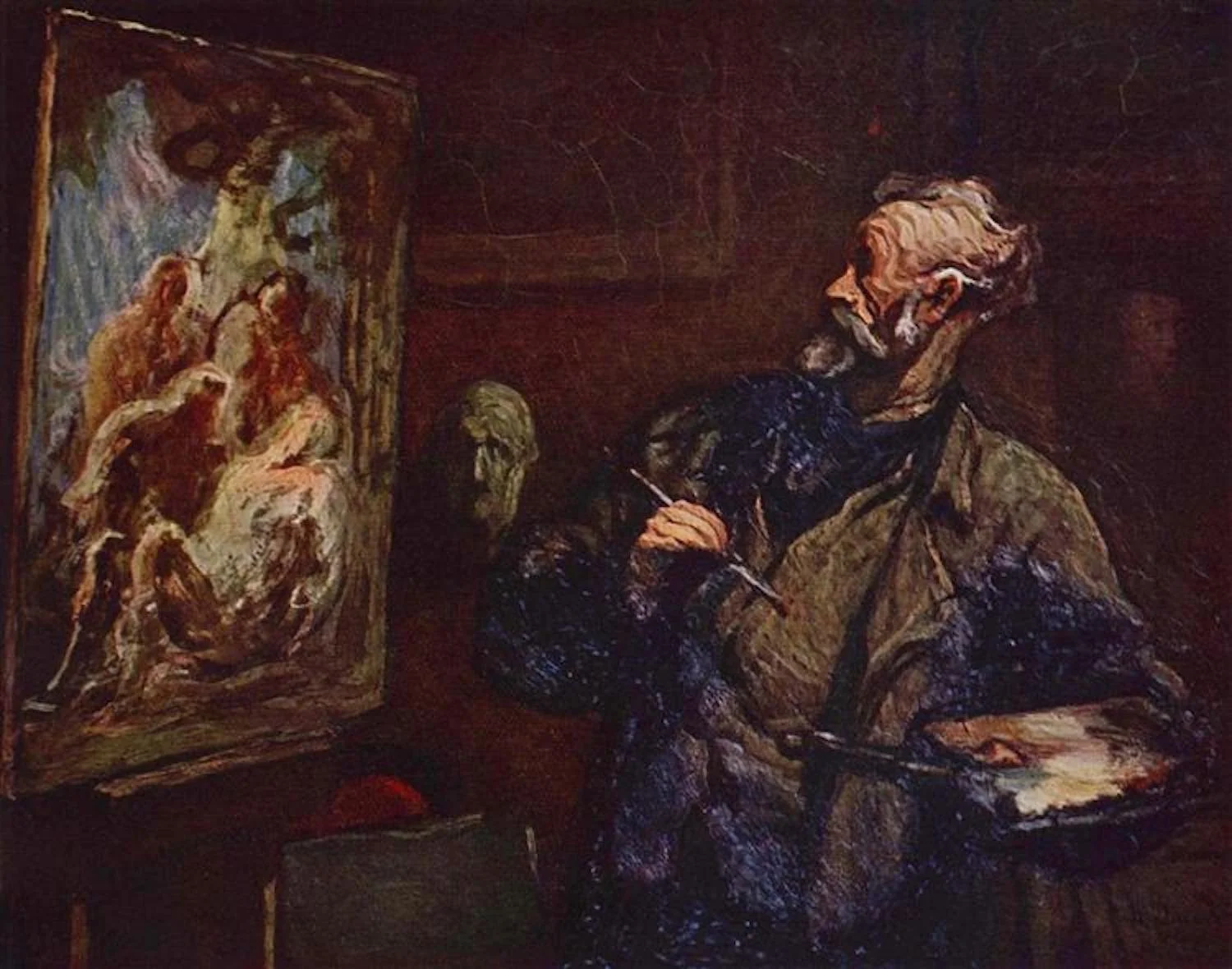The painter by Honore Daumier (Public domain)
The Wisdom of Contemplation
The philosopher Aristotle called “contemplation the highest form of activity and the most continuous” since we are more capable of continuous contemplation than other practical activities. Similarly, the theologian Thomas Aquinas said it was necessary for the perfection of human society that there should be people who devote their lives to contemplation.
What is Contemplation?
What we plant in the soil of contemplation, we shall reap in the harvest of action. — Meister Eckhart
There are many definitions and practices associated with contemplation. However, the most straightforward is — deep reflective thought. As mentioned, throughout history, philosophers and theologians have stressed the importance of the practice of contemplation.
The writer and Franciscan priest Richard Rohr (founder of the Center for Action and Contemplation) writes, “The best definition I know for contemplation is as follows: Contemplation is a long, loving look at what really is.” According to Rohr, “contemplation is finding a place where we can receive all of our experiences without repressing anything.” It’s a place where we can consider all that we’ve done –and not done–in our lives, a place that’s bigger than Yes and No, a place bigger than the judgments we pass.
The Practice of Contemplation
Aristotle insisted we become better through the right action. Although towards the end of the Nicomachean Ethics, he concludes the activity of wisdom is contemplation, so, therefore, “contemplation is the highest activity of human life.”
But how does one practice contemplation?
The Roman Emperor Marcus Aurelius may provide the best example of contemplation in practice. His personal journal, known today as Meditations, has been called one of the greatest works of spiritual and ethical reflection ever written.
Take this passage for example,
Is change something to fear? But can anything happen without change? Is there anything that’s nearer and dearer to universal nature? What about you personally? Can you take a warm bath unless the firewood undergoes a change? Can you be nourished unless your food undergoes a change? Can anything else worthwhile take place without change? So don’t you see that the changes you experience are no different and are similarly necessary to universal nature? — Meditations, 7.18
Marcus wrestles with the topic of change through a series of repeated deep self-reflection questions. He contemplates the notion of change many other times throughout Meditations. In book 4, Marcus wrote to himself this quote from the philosopher Heraclitus, “The death of earth is the birth of water, the death of water is the birth of air, the death of air is fire.”
Although contemplation is a solitary practice, Meditations reveals that deep reflection can help us to realize our connection with others.
In a well-known passage from Book 2, Marcus wrote, “At the start of each day tell yourself: I shall meet people who are abusive, ungrateful….”
The passage concludes like this,
Because we were born to work together, like feet or hands or eyelids, like the rows of upper and lower teeth. To work against each other is therefore unnatural — and anger and rejection count as ‘working against.’
Through his deep reflection on the challenges of dealing with difficult people, Marcus is able to find both compassion and clarity.
Final Thoughts
The theologian Josef Pieper wrote in Happiness and Contemplation, “the ultimate meaning of the active life is to make possible the happiness of contemplation.” Although action and contemplation are closely intertwined. We should avoid the trap of viewing contemplation as a productivity hack. Contemplation is a lifelong endeavor with no goal to attain. The practice of contemplation, like virtue — is its own reward.
——
Thank you for reading; I hope you found something useful. If so, please consider sharing it with others.
Each week, we send a short reflection with three insights to help you live your highest good. If you are not a subscriber to The PATH you can sign up here to receive it right to your inbox.






